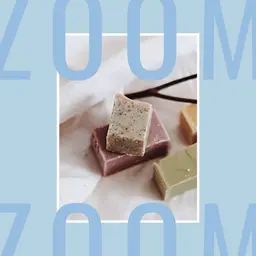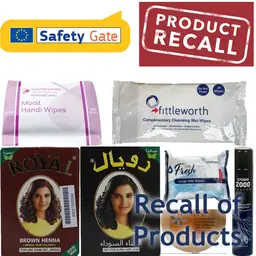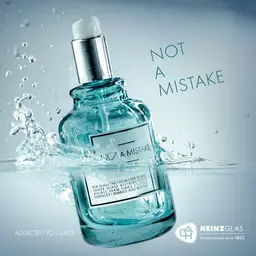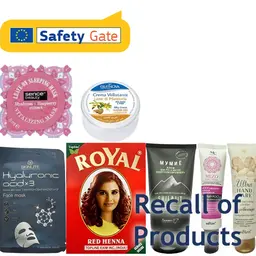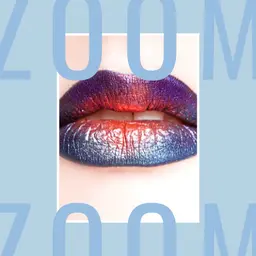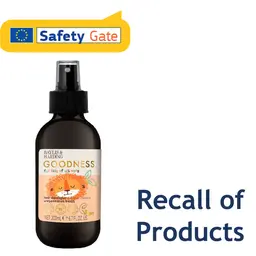
Neither niche nor mainstream (best-selling perfumes), and 100% independent, arthouse perfumery creates real different, qualitative fragrances and seduces an increasing number of perfume lovers. Here are three portraits of perfumers who have been following this movement, while highlighting French creation.
Diptyque belongs to a pension fund, Serge Lutens went back to Shiseido, and last June, Atelier Cologne was purchased by the L’Oréal Group. Real independent artists are getting scarce in the world of perfumery, which is why this time, we decided to focus on them. And the three perfumers we chose are talented and completely free.
Truly inspired, they belong to no one but themselves and only listen to their own creative instincts, far from common tastes, marketing briefs, or market research… They are just three incredibly endearing, inventive personalities. And oddly enough, you will find no establishment figure among them, no one from ISIPCA, no ‘spoilt’ rich kid, but atypical career paths and authentic passion…
Unsurprisingly, their perfumes are very personal, off the beaten track, and do not follow any trend. However, unintentionally, this return to craft design with beautiful raw materials and ‘French quality’ is actually a major current trend. Their creations can be found at the Bon Marché Rive Gauche department store, at Colette’s or Liquides’s, or in their own stores… And they do meet their well-informed public – people anxious not to feel like everybody else.
Gifted Pierre Guillaume
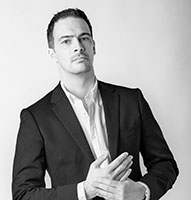 After training as a chemist, Pierre Guillaume created the Parfumerie Générale brand (as a reference to his initials) in 2002. Originally from Clermont, France, he was 25 when he composed his first perfume, which he called COZE 02. This ‘spicy tobacco’ note, which evokes the content of a precious humidor that belonged to his father, was quickly noticed by the critics, who thrust him into the ‘perfume blogosphere’ and promoted him to professional buyers all around the world. A 2005 laudatory article by Chandler Burr, a perfume critic of The New York Times and GQ, was titled ‘How a young French chemist concocted the coolest new European fragrance’: it marked the birth of his fame.
After training as a chemist, Pierre Guillaume created the Parfumerie Générale brand (as a reference to his initials) in 2002. Originally from Clermont, France, he was 25 when he composed his first perfume, which he called COZE 02. This ‘spicy tobacco’ note, which evokes the content of a precious humidor that belonged to his father, was quickly noticed by the critics, who thrust him into the ‘perfume blogosphere’ and promoted him to professional buyers all around the world. A 2005 laudatory article by Chandler Burr, a perfume critic of The New York Times and GQ, was titled ‘How a young French chemist concocted the coolest new European fragrance’: it marked the birth of his fame.
A year later, Lucas Turin set him up in his guide, an absolute reference for all the initiated. In 2010, the Pierre Guillaume Diffusion company was founded and fitted with a production tool comprising a composition studio, a cellar for raw materials, and a conditioning line wholly dedicated to the manufacturing of perfumes imagined by Pierre Guillaume.
In 2014, he launched Isparta, an oriental chypre which, to this day, remains the brand’s bestseller – it represents 20% of the production capacity!
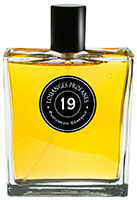 Louanges Profanes, this floral, fresh, powdered oriental fragrance dominated by neroli and balms, was another success. Then, a second workshop and the website were inaugurated in 2015 – the company grows fast.
Louanges Profanes, this floral, fresh, powdered oriental fragrance dominated by neroli and balms, was another success. Then, a second workshop and the website were inaugurated in 2015 – the company grows fast.
Lastly, Pierre Guillaume has just opened his own store in Paris, where you can find all the perfumes in the Parfumerie Générale, Huitième Art, and Croisière collections, as well as the exclusive Rhapsodie collection, only available in this store.
As talkative as his perfumes are changeable and complex, Pierre Guillaume could talk for ever about perfumery, or spend hours explaining the construction of one of his fragrances, designed ‘like falling dominoes’, or how the spicy side of white lily echoes that of incense. It is fascinating, and we actually ask for more! His culture on perfumes is just phenomenal, he can decipher most compositions. And he is also a fruitful creator – he has already signed about sixty creations! – endowed with obvious charisma who loves mixing olfactory genres. His trademark is his spontaneity and creativity:
‘When you target a minority of people, being consensual is not your job.’
He enjoys total artistic and financial freedom to invent perfumes in his own workshops, and sells them through a network that already counts almost 250 points of sale all around the world. Pierre Guillaume also gives priority to geographical closeness and the ‘Made in France’ concept (even ‘Made in Auvergne’, his dearest region, if possible!) when he chooses packaging (pumps, bottles, cases, caps, labels, booklets, etc.).
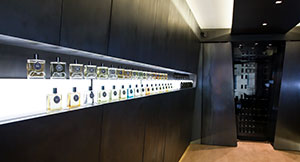 His latest creation is Limanakia (Eau de parfum, 30ml, €65; 50ml, €95; 100ml, €140 – all perfumes in the Parfumerie Générale Collection are available for the same price) a solar, aromatic perfume mingling the mineral and animal genres. It contains Tiaré flower, patchouli salt, hot labdanum, a salicylate ‘rocky beach’ note, wild musk… We are instantaneously embarked on beaches overwhelmed by the heat and lined with cistus, as an invitation to embraces… enough to warm up the cold!! Latest news: he has just created his first candle collection (La Bougie Croisière, €65).
His latest creation is Limanakia (Eau de parfum, 30ml, €65; 50ml, €95; 100ml, €140 – all perfumes in the Parfumerie Générale Collection are available for the same price) a solar, aromatic perfume mingling the mineral and animal genres. It contains Tiaré flower, patchouli salt, hot labdanum, a salicylate ‘rocky beach’ note, wild musk… We are instantaneously embarked on beaches overwhelmed by the heat and lined with cistus, as an invitation to embraces… enough to warm up the cold!! Latest news: he has just created his first candle collection (La Bougie Croisière, €65).
One thing is for sure, no one can stop talented Pierre Guillaume!
Alberto Morillas: elegance of a prince, simplicity of a craft worker
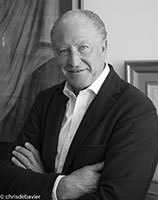 No need to introduce Alberto Morillas, the renowned Spanish master perfumer (he received the Fragrance Foundation Grand Prix for his career in 2014). He was the one behind most famous perfumes like CK One by Calvin Klein, Flower by Kenzo, Aqua di Gio by Armani, Pleasures by Estée Lauder, Essence by Narciso Rodriguez…
No need to introduce Alberto Morillas, the renowned Spanish master perfumer (he received the Fragrance Foundation Grand Prix for his career in 2014). He was the one behind most famous perfumes like CK One by Calvin Klein, Flower by Kenzo, Aqua di Gio by Armani, Pleasures by Estée Lauder, Essence by Narciso Rodriguez…
And yet, his most personal creation was Mizencir. It was born in 1999 and designed with his wife Claudine. They started with a collection of deliciously perfumed candles (as from €26), with the will to ‘turn fragrances into wax’, and then launched their collection of
eaux de parfum
(17, to this day). Both are available at Colette’s, as well as in the Mizencir store in Geneva.
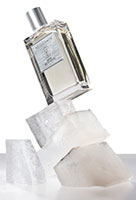 Again, his career path is atypical. He does not even hold any PhD in Chemistry, which did not prevent him from joining Firmenich. Seduced by this young man who created perfumes without actually being a perfumer, the Swiss company later made him attend a specific training programme in New York City. As a genuine craft worker (he still weighs his formulas himself), he always shows both purity of soul and enthusiasm. To him, neroli essence deserves to be constantly revisited, and white musk has not unveiled all its olfactory richness yet. Everything remains to be discovered, done, smelt…
Again, his career path is atypical. He does not even hold any PhD in Chemistry, which did not prevent him from joining Firmenich. Seduced by this young man who created perfumes without actually being a perfumer, the Swiss company later made him attend a specific training programme in New York City. As a genuine craft worker (he still weighs his formulas himself), he always shows both purity of soul and enthusiasm. To him, neroli essence deserves to be constantly revisited, and white musk has not unveiled all its olfactory richness yet. Everything remains to be discovered, done, smelt…
Thanks to a total freedom of creation and a very personal writing style characterized by sheer elegance, he draws inspiration from old and recent memories of his, his many trips, striking encounters, and… his fabulous garden. Long fascinated by woody notes, he has never ceased exploring them, as his two latest creations show: Bois de Mysore and Bois Iridescent (100ml, €190 each). The first is a tribute to sandalwood, from peak to roots, and the second, a ‘floral woody fragrance’, is solar (bergamot orange and tangerine essences), powdered, and floral (iris concrete and violet leaf absolute). The trail highlights the creamy unctuousness of sandalwood, a tree he is obviously keen on!
The youngest: David Benedek, creator of BDK Parfums
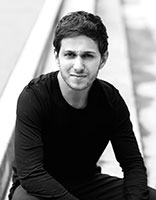 Born in Paris in 1989 from a Romanian father and a mother born at the border between Algeria and Morocco, David Benedek grew up in the world of perfumery. His grandparents, exiles from Transylvania, were among the first people allowed to distribute major perfume brands, like Worth or Christian Dior, in the fifties in Paris. Then, they specialized in perfume and luxury product selling to foreign customers visiting the capital, and opened their first store in the 1960s, at the corner of Rue Royale and Rue Saint Honoré.
Born in Paris in 1989 from a Romanian father and a mother born at the border between Algeria and Morocco, David Benedek grew up in the world of perfumery. His grandparents, exiles from Transylvania, were among the first people allowed to distribute major perfume brands, like Worth or Christian Dior, in the fifties in Paris. Then, they specialized in perfume and luxury product selling to foreign customers visiting the capital, and opened their first store in the 1960s, at the corner of Rue Royale and Rue Saint Honoré.
From father to son, the family expertise in perfumery developed year after year. David studied Economics, and then left to study in Beijing and New York City in 2010. When he got back, he went to the Institut Français de la Mode in 2012, where he specialized in the world of perfumes and cosmetics. He spent more than a year learning how to recognize the main raw materials, olfactory families, and their specificities, before getting more in-depth knowledge of the steps required to create fragrances.
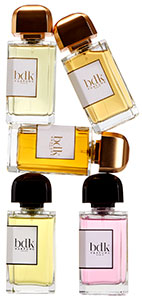 Smelling, discovering, recognizing… he got more familiar with the subtleties of this world with the Givaudan teams. His passion gradually turned into a need, that of making it his job. He refined his learning with Institut Cinquième Sens, which helped him reveal his own olfactory world. That is when he created his own company, BDK Parfums, to be able to develop ‘Made in France’ products manufactured by local companies to highlight an exceptional, vivid, rich heritage.
Smelling, discovering, recognizing… he got more familiar with the subtleties of this world with the Givaudan teams. His passion gradually turned into a need, that of making it his job. He refined his learning with Institut Cinquième Sens, which helped him reveal his own olfactory world. That is when he created his own company, BDK Parfums, to be able to develop ‘Made in France’ products manufactured by local companies to highlight an exceptional, vivid, rich heritage.
Inspired by the architecture of the dome of the Grand Palais in Paris, the bottle caps, developed in the region of Paris by a silversmith-jeweller, are a tribute to the monument. As for the bevelled bottles, they seem to have been engraved in a block of crystal. Made in Normandy by a master glassmaker, their transparency and sheen are unique, which intensifies the colour of the juices.
Then, the labels come from a printing house in the Marais quarter in Paris and are affixed by hand.
Lastly, similar to book bindings, the boxes are shaped by a family company in the region of Le Mans, west of Paris. The list of the main perfume components is affixed to each box, and side by side, these boxes form an encyclopaedia of beautiful perfumes.
Today, BDK Parfums feature two collections: the Parisian collection (Bouquet de Hongrie, Pas Ce Soir) and the oriental collection (Wood Jasmin, Oud Abramad, Tubéreuse Impériale). All in all, it makes five
eaux de parfum
(100ml, €140) that stage a main raw material (all perfume concentrates come from the French southern region of Grasse). Tubéreuse impériale combines this carnal flower with a bouquet of ylang ylang and jasmine. The first men’s perfume will be released in January.
As a young newcomer in this trade, David represents a promising talent. His singular fragrances immediately conquered Liquides (the ‘temple’ of alternative perfumery) and the Bon Marché Rive Gauche department store.
Ariane Le Febvre

